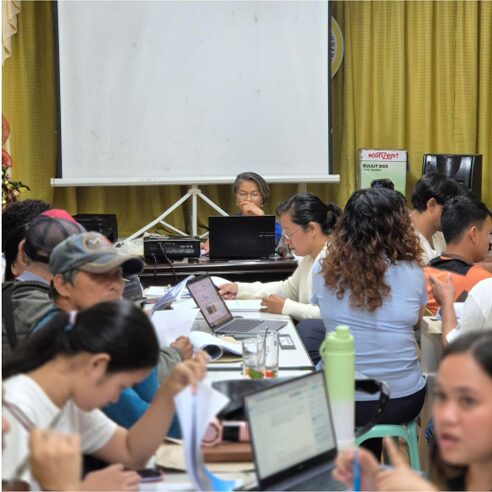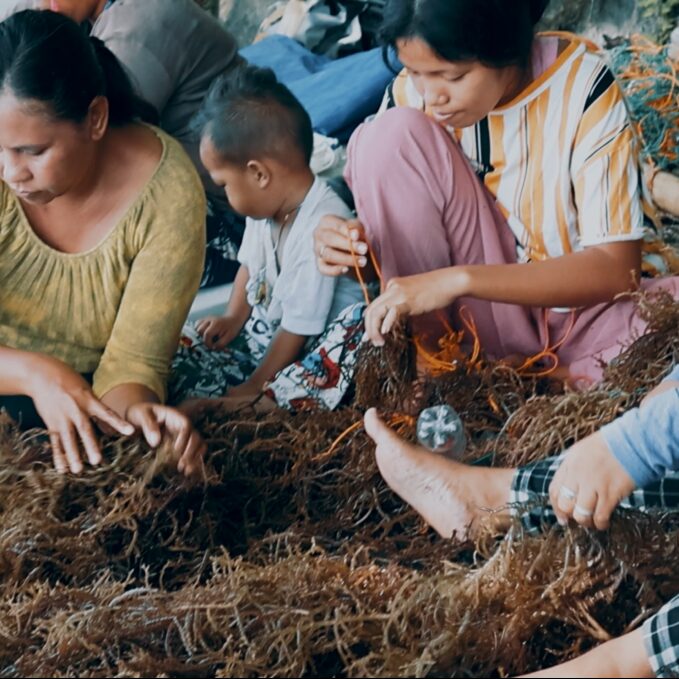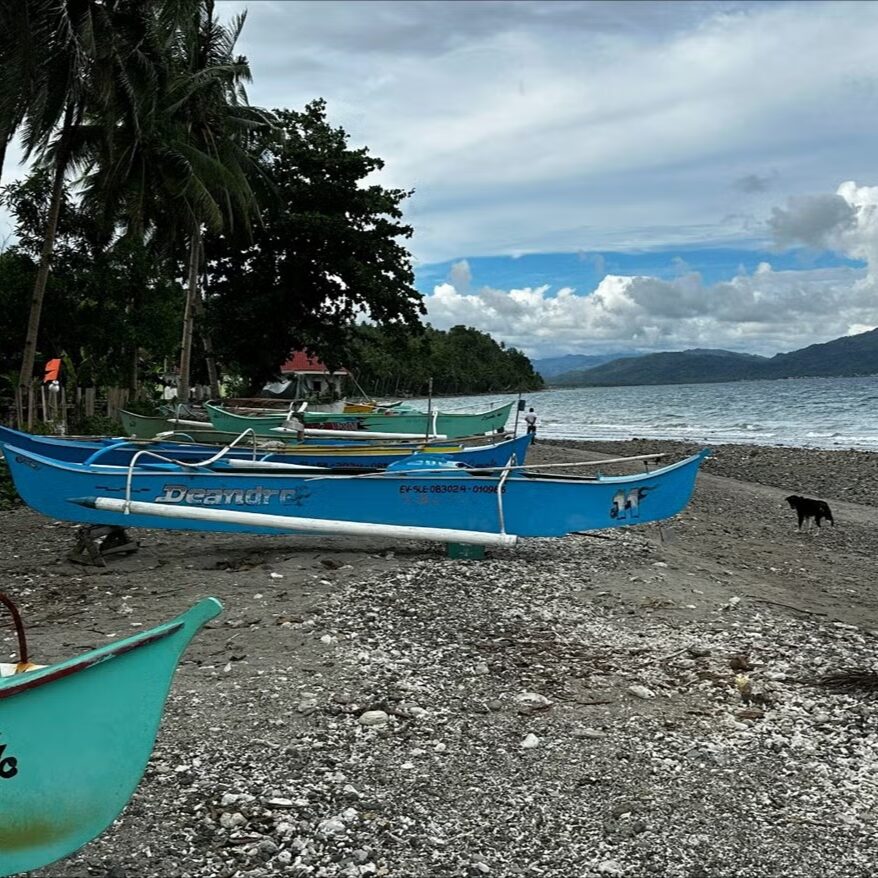Advancing ecosystem-based approaches for building climate resilience, livelihoods, and food security in the Coral Triangle Philippines
Project Information
In partnership with the Global EbA Fund, the Environmental Defense Fund worked with local organizations and officials in the Philippines to combat the impacts of climate change and help build resilience in Cabalian Bay, an extremely climate-vulnerable fishing region in the Philippines. Here, climate change, unsustainable coastal development, and overfishing have damaged nearshore and offshore ecosystems, limiting the benefits these ecosystems can provide for local communities, such as storm surge protection and fisheries habitat. These drivers have also made local fishers and fish farmers more food and income insecure. The Environmental Defense Fund’s resilience project helped to restore damaged ecosystems, create sustainable livelihoods, increase food security, and mitigate climate change impacts.
The project helped build resilience for Cabalian Bay through two initiatives:
- Open ocean seaweed farming: EDF and partners harnessed the benefits of aquaculture to restore damaged ecosystems, increase food security, and create sustainable livelihoods — all while capturing harmful pollution from the atmosphere and mitigating climate change impacts on the ocean. After successfully operating a regenerative open ocean seaweed farm for over a year, the project team launched a separate seaweed farm to provide livelihood opportunities to community members. EDF’s team and partners trained thirty members of the local women-led organization Juanas Lipanto Association on seaweed farming and business practices. Today, these community members are fully managing the day-to-day operations of the farm. They received their first income from the sale of seaweed and have arranged an agreement to provide seedlings to the Bureau of Fisheries and Aquatic Resources to expand the benefits of seaweed farming to other parts of the region.
- Coastal Resource Management: In addition to promoting the economic and environmental benefits of regenerative seaweed aquaculture, EDF supported local partners to develop a coastal resource management plan to support thriving oceans and marine life amid a changing climate. Moving forward, the plan will provide a roadmap for sustainable coastal management as local partners prepare to implement it over the coming years.
The plan was developed through an inclusive and participatory process. The project team formed a working group of key stakeholders to determine how to restore and sustainably manage marine resources that are culturally and economically vital to the region. Members include representatives from the Local Government Units of Saint Bernard, provincial government agencies, eight local barangays, the Department of Environment and Natural Resources, the Bureau of Fisheries and Aquatic Resources, the Philippine National Police and Coastguard, Southern Leyte State University, community-based organizations, and more. The project equipped working group members with detailed habitat assessments and maps to inform the management plan, which was completed in early 2025.
Project Achievements
1. Established a community-managed seaweed livelihoods farm: Through training, capacity building, and strategic partnerships, EDF developed a community-managed seaweed aquaculture farm. Working alongside a local women-led organization, the Juanas Lipanto Association, the project developed the farm from the ground up, providing financial and technical support, and facilitating extensive training and capacity building on a range of topics required for the long-term success of the farm (water safety, ecological seaweed production, social enterprise development, financial management, etc.). Farm ownership and management has transitioned to the association, and EDF and partners provided them with a five-year business plan to support the farm’s long-term success.
2. Strengthened local governance and policy engagement for coastal resource management: EDF facilitated the formation of a Technical Working Group (TWG) through a Municipal Order, bringing together representatives from the Local Government Unit (LGU), the Department of Environment and Natural Resources (DENR), BFAR, the provincial government, community organizations, and academic institutions. The TWG convened regularly to develop the Integrated Coastal Resource Management Plan (ICRMP), refine management strategies, and advocate policy adoption. Additionally, the project developed a template for future ICRMPs and a policy brief advocating for the use of the template across the region to better integrate EbA and climate change in resource management planning.
3. Advanced biodiversity conservation through ecosystem assessments and mapping: EDF completed comprehensive coastal habitat assessments across eight barangays, providing critical data on mangroves, coral reefs, and seagrass ecosystems. Mangrove drone mapping identified key conservation areas, and EDF engaged local communities in participatory assessments to validate findings and inform sustainable management strategies that were incorporated into the ICRMP.
4. Developed the Integrated Coastal Resource Management Plan (ICRMP) for Saint Bernard: EDF collaborated with local government, academic institutions, and community stakeholders to draft and finalize the ICRMP, incorporating data from assessments the project conducted. The plan provides a roadmap for sustainable coastal management, including strengthening the enforcement of existing environmental laws and guiding the creation of new policies.
Key Metrics
Implemented By:
Environmental Defense Fund
A Template for Resilience: Standardizing ICRMPs with Ecosystem-based Adaptation


Environmental Defense Fund
Seaweed Farming: Fresh Green Hope for the Philippines’ Blue Economy

